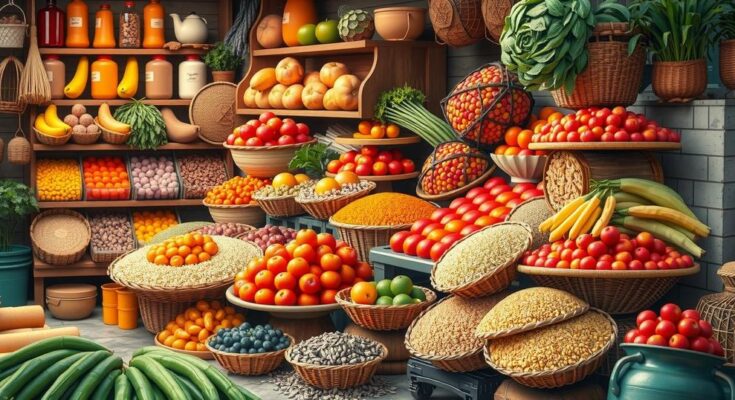Nigeria’s food import spending rose to $1.87 billion in the first nine months of 2024, a $235.11 million increase from the same period in 2023. Significant fluctuations in foreign exchange allocations were noted, with notable surges in the latter half of the year. This reflects ongoing reliance on imports and challenges in local agricultural production.
Nigeria has spent $1.87 billion on food imports in the first nine months of 2024, according to the Central Bank of Nigeria (CBN). This amount represents an increase of $235.11 million compared to the $1.64 billion spent during the same period in 2023, demonstrating a 14.37% rise in foreign exchange allocations to cater to local demand for food imports.
Throughout 2024, there have been significant fluctuations in monthly foreign exchange allocations for food. In January, allocations saw a 33.08% drop from $245.69 million to $164.43 million compared to the previous year. However, February experienced a notable recovery with spending nearly doubling to $303.91 million from $163.57 million in 2023.
The latter half of 2024 observed substantial increases in foreign exchange spending for food imports. For instance, in July, allocations surged by 158.82% to $149.91 million compared to $57.91 million in the prior year. August saw a further increase of 188.51%, as the figure reached $275.04 million from $95.33 million. Similarly, September recorded a 74.13% rise to $208.68 million from $119.87 million the previous year.
Despite these fluctuations, the overall spending on food imports for 2024 illustrates a significant rise. This trend indicates a continued reliance on imported food, reflecting persistent challenges in Nigeria’s agricultural sector despite various initiatives aimed at enhancing local production.
In conclusion, Nigeria’s expenditure on food imports has reached $1.87 billion in 2024, marking a substantial increase from the previous year. This reflects the challenges faced in achieving self-sufficiency in food production, despite attempts to bolster local agricultural initiatives. The monthly fluctuations in foreign exchange allocations further highlight the country’s ongoing vulnerabilities in the food supply chain.
Original Source: osundefender.com




